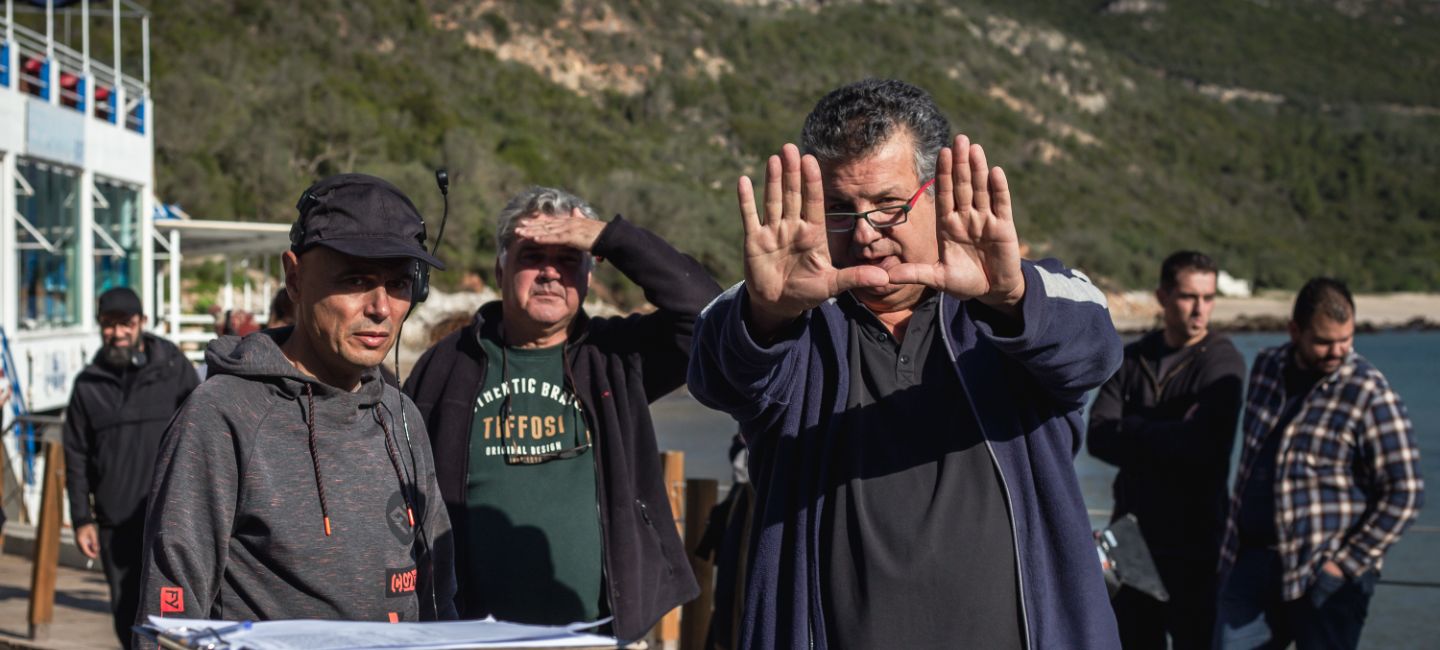Interview with Jorge Queiroga - Project Director of TIMELESS LOVE
To mark the start of the new SP Televisão production, TIMELESS LOVE, we will introduce you, throughout the month of February, some of the faces that work daily for the final result, from the authors, to the producers and directors, to the actors and technical team.
We begin this incursion with an interview with the Director of this Project, Jorge Queiroga. Jorge started his career in 1994 in the seventh art, having more than 25 years of experience in cinema and television and more than 40 productions and several awards and nominations in his curriculum.
When did you decide to become a director? What motivated you?
It wasn't exactly a decision, but rather a family influence. My grandfather, with whom I had a very close relationship, was a director. And I had a lot of fun in his studios. I think it was this experience that led me to follow in my grandfather's footsteps and start working as a director.
After having experienced almost every genre - cinema, comedy, documentary, soap opera - among others, what gives you the most pleasure to do?
I like any genre, as long as it tells a good story. What motivates me most is to tell good stories with good characters. Basically, stories are behind a good product, regardless of its nature.
How do you prepare the realization of a soap opera?
Although the soap opera is, in some way, a more industrialized product, I never like to look at it that way, because that can block me from looking for new ways to handle it. When I prepare a new novel, I read the proposal and the synopsis, and I constantly ask myself, "What if this was something different? If it was nonsense or said differently?", I try to have no barriers so that I can think outside of the box and visualize different ways of approaching a project.
From here the language is born, the particularities of the characters, the conceptualization of the sets, and so on. After this first stage, everything is already more solid and it becomes much easier to develop the story. I never have, nor do I want to have, the feeling that I am working on a project identical to another one I have developed. I don't like that either. For me, a project is not just more, it's the project.
What challenges did the soap opera TIMELESS LOVE bring you?
The great challenge was undoubtedly the solidification of the characters and the main characters, as is the case of Catarina, played by Bárbara and Vasco, played by Francisco. As well as the so-called collective character, which is the Torres' family. One of my concerns was to try to make sure that the characters are consistent, that they have many nuances, and that the structuring and development of each one of them is coherent and attractive. The next challenge is also to try to add richness to the technical approach, to the sets designs, and to do some testing, to see what works best according to what I had envisioned.
We have two very interesting examples in Flor Sem Tempo, in my opinion: first, the creation of a street in the middle of the studio, which gives an enormous richness to the sets that are part of that street, as well as to the scenes of circulation in the street, day and night. The second good example is the fact that we created a character who lives on a boat and built the interior of the boat from scratch in the set. This allows us to transport that boat anywhere in the world, as long as we have a stockshot of the boat in that location. This gives the story an interesting approach, as the protagonist will be going on a long trip and we will transport the boat to the other side of the world, but the interior scenes will actually be in the studio.
Sacramental question: cinema or television?
These are things that seem very different, but they are not. Before television, cinema already existed. We all end up getting the language and grammar that comes from there. Nowadays, for example, television is a completely autonomous broadcasting and production media from cinema, and they have nothing in common with each other in this respect. What do they have in common? The stories we tell. For a story to be good, it has to be good in cinema, on television, on the radio, in opera. Basically, we tell a narrative with sounds and images, and this doesn't distinguish between the treatment or approach of one format or another.
In fact, television has, nowadays, a particular characteristic that I like a lot, the freedom of approach and experimentation, which is being developed a lot, not only in soap operas but in other formats, such as series, which means it's a very rich world. Television has something that for me is fundamental, the capacity to rethink every day what we are doing, because it is a continuous and long process. It's very different from me going home after preparing a film in two years and shooting it in two months, end of story. In television, I have to think about my work every day to see how it works best on screen and that is a typical exercise in television. You could say that television is a very fast and vertiginous machine, but I like to move at that speed, it's much more challenging.


